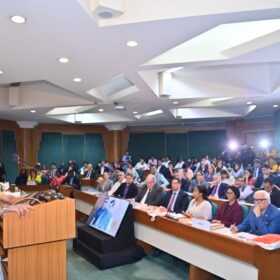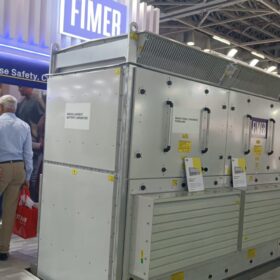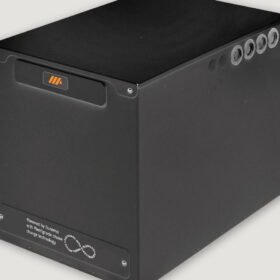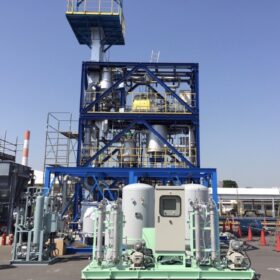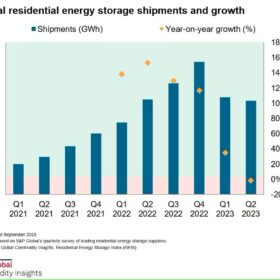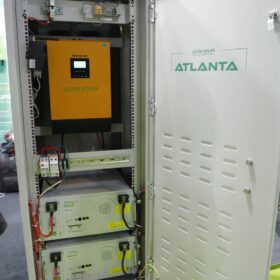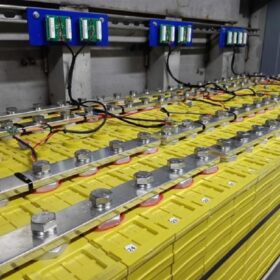Leaders from 116 countries to attend the 6th Assembly of International Solar Alliance in New Delhi
The Sixth Assembly of the International Solar Alliance will focus on universalizing energy access through solar mini-grids, mobilizing finance for accelerated solar deployment, and diversifying supply chains and manufacturing for solar.
FIMER to launch 5 MVA bidirectional converter in India
FIMER has 10 GW of annual production capacity in India and manufactures central inverters, bidirectional /battery converters for BESS applications, and microgrid inverters. The company will launch a 5 MVA bidirectional converter completely Made in India, following the success of its 2 MVA bidirectional converter, PVS980-58BC.
Triple Solar introduces residential thermal battery
Dutch company Triple Solar has launched a residential thermal battery with a heat loss rate ranging from 0.67 kWh/day to 0.84 kWh/day. The new product can reportedly provide hot water at temperatures ranging from 45C and 55C, with the minimum heat source temperature ranging between 65C and 80C.
The Hydrogen Stream: Japan backs hydrogen in aviation
The Japanese government has confirmed to pv magazine that it is launching a new support scheme for hydrogen in aviation, while Japanese investors continue to actively pursue participation in a green ammonia project in South Africa.
Residential battery inventories soaring in Europe, says S&P Global
European warehouses are reporting extremely high inventory levels for residential energy storage systems, with aggressive prices expected, as distributors need to start clearing their stocks, according to S&P Global.
Birla Carbon acquires Belgian nanotube manufacturer to drive growth in lithium battery materials
Birla Carbon has acquired Belgium’s carbon nanotube manufacturer Nanocyl as it looks to establish a leadership position in materials critical to lithium-ion battery performance.
Loom Solar unveils energy storage system for homes and businesses
India’s Loom Solar has unveiled IoT-based all-in-one energy storage solutions for homes and businesses. The systems use lithium iron phosphate (LFP) batteries and are available in storage capacities of 5 kWh and 10 kWh.
Lithium-ion batteries differ in terms of risk
As the energy storage trend unfolds, stories litter the media landscape about lithium-ion batteries catching fire, and even exploding. This is a valid concern, as the time for consumers to understand a basic truth about lithium-ion batteries is long past due.
Epsilon Group acquires LFP cathode technology centre in Germany
The purchase follows Epsilon’s recent $1.1 billion investment in the establishment of a 100,000-ton cathode battery materials manufacturing facility in Karnataka, India.
Amara Raja Batteries is now Amara Raja Energy & Mobility
Amara Raja Batteries has changed its name to Amara Raja Energy & Mobility as it directs its focus to becoming a comprehensive solutions provider in the energy and mobility space.
